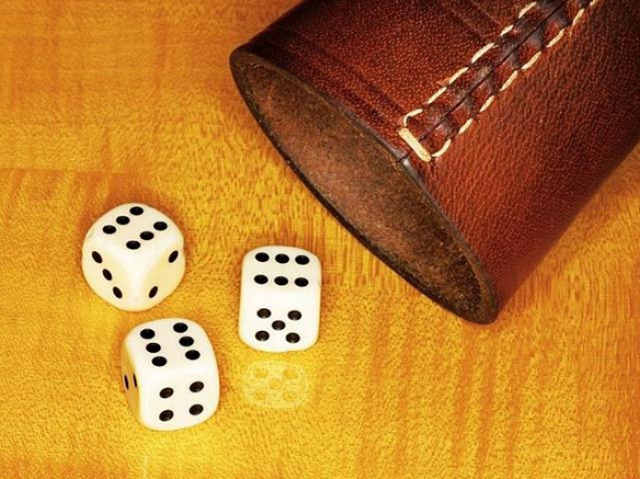
New research refutes previous high-profile study
| THE INDEPENDENT | New large-scale research led by the University of Leicester shows that winning does not cause people to cheat, in stark contrast to a previous high-profile study.
A 2016 paper by Israeli researchers reported a series of experiments, which claimed that winners of skill-based competitions are more likely to steal money in subsequent games of chance against different opponents, as opposed to losers or people who did not see themselves as winners or losers.
This highly-cited study of relatively small sample sizes proposed that competitive winning induces a sense of entitlement that encourages cheating.
But now, an expanded and enhanced study by researchers at the University of Leicester (UK) and the University of Southern California (USA), published on Aug.03 in the journal Royal Society Open Science, has refuted the original findings.
The international team of researchers found that people with a strong sense of fairness cheat less — regardless of whether they had previously won or lost.
They examined the behaviour of 259 participants in a lab-based dice-rolling game — identical to the original study — and 275 participants undertaking a basic coin-tossing game in an additional online experiment. The results were then analysed using standard statistics plus a mathematical technique called structural equation modelling.
Researchers found that a small but significant amount of cheating occurred for the financial rewards on offer, just as in the original study. However, winning did not increase subsequent cheating or increase people’s sense of entitlement — and neither did losing.
Instead, the only factor investigated which could account for the small (but significant) amount of the cheating that occurred was low ‘inequality aversion’.
People with inequality aversion dislike unequal outcomes. Those with a strong sense of fairness tend to be inequality averse, and they avoid cheating because they view the practice as a form of unfairness.
Andrew Colman is a Professor of Psychology within the University of Leicester’s Department of Neuroscience, Psychology and Behaviour, and also served as lead author for the new study.
Professor Colman said: “Cheating and general dishonesty are of growing concern in the light of academic dishonesty in the digital age, problems of tax avoidance and evasion by wealthy people in developed economies, and more generally effects of widening inequality in wealth and income on corruption and crime.”
“We were surprised by the findings in the 2016 study, and that’s why we wanted to replicate it with substantial sample sizes. The original study’s small samples do not have the statistical power to generate firm conclusions.
“We were amazed when it turned out that neither winning nor losing had any effect on cheating although a significant amount of cheating occurred. We have at least provided scientifically sound data that give a clear answer to the question.”
The 2016 paper, “Winning a competition predicts dishonest behavior” by Amos Schurr and Ilana Ritov was published in the journal `Proceedings of the National Academy of Sciences’.
The authors note the prevalence of competition in everyday life and said that, not surprisingly, competition is central to the study of economics, psychology, sociology, political science, and more.
They argued that although we know much about contestants’ behavior before and during competitions, we know little about contestants’ behavior after the competition has ended. They say said by connecting postcompetition behaviors with preceding competition experience, they found that after a competition is over winners behave more dishonestly than losers in an unrelated subsequent task. Furthermore, the subsequent unethical behavior effect seems to depend on winning, rather than on mere success. Providing insight into the issue is important in gaining understanding of how unethical behavior may cascade from exposure to competitive settings.
According to them, winning a competition engenders subsequent unrelated unethical behavior. They said five studies revealed that after a competition has taken place winners behave more dishonestly than competition losers.
Two of the studies demonstrated that winning a competition increases the likelihood of winners to steal money from their counterparts in a subsequent unrelated task and two others demonstrated that the effect holds only when winning means performing better than others (i.e., determined in reference to others) but not when success is determined by chance or in reference to a personal goal. Finally, the last study demonstrated that a possible mechanism underlying the effect is an enhanced sense of entitlement among competition winners.
****
 The Independent Uganda: You get the Truth we Pay the Price
The Independent Uganda: You get the Truth we Pay the Price

